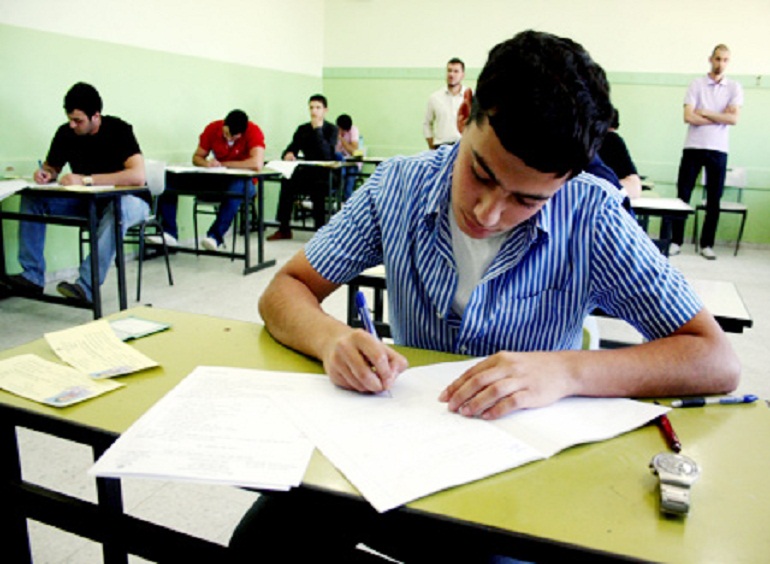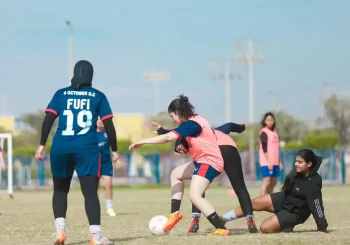By Jihad Abaza, Aswat Masriya
The number of detained students cited in the interior ministry’s statement on in-prison exams “reveals” the extent of “oppression against students in Egypt,” a student rights worker told Aswat Masriya on Thursday.
The interior ministry said in a statement on Tuesday that it will “allow” 3,462 students to take their exams inside prison, in coordination with the ministry of education. The statement did not specify the number of students convicted in political cases as opposed to criminal prisoners.
Amru Kilany works for the Justice Centre, an NGO that provides support for detained students. He told Aswat Masriya that there are 2,200 students who are “prisoners of conscience” or are detained in political cases. One thousand and fifty of these students were arrested in the academic year of 2014-2015, he added.
More recently, security forces arrested 20 students on Jan. 25, according to the Justice Centre’s records. The day marks the fifth anniversary of the 2011 Uprising that toppled then-President Hosni Mubarak after he ruled the country for 30 years.
Kilany said that the Justice Centre has been assisting imprisoned students with the necessary procedures for exams. There are three parties involved in the paperwork: the universities and faculties, the prison administration, and the public prosecution.
“Sometimes the university or faculty refuses to give us the documents that prove that the student is enrolled with them, sometimes the public prosecutors refuse to give us the paperwork that proves that the student is imprisoned, and sometimes the prison administrators do not allow the students access to the exam itself,” Kilany said.
But overall, he added, there have been less violations by these three parties and many students have been allowed to take their exams, with the exception of practical exams, which he says universities maintain cannot be taken in prison due to their special nature.
A security source in Egypt’s prison services told Aswat Masriya that the interior ministry is going through the legal procedures regarding assisting students in continuing their education inside prison.
The source also said that for students to continue taking their exams, they must provide prison administrators with a sealed statement from their university as well as a stamped schedule of their exams. The prison administrators must then verify that the paperwork is original.
The source added that the interior ministry allows students access to the prison library to read, and that it allows them access to necessary textbooks.
“The exam is my right”
“Freedom Seekers,” an observatory that documents and surveys student imprisonment cases, began an initiative entitled, “the exam is my right” in December. The words “Freedom Seekers” in Arabic carry the double meaning of “Students for Freedom.”
The group stated that public prosecution has previously denied students the right to take their exams, even after having gone through all the necessary legal procedures that precede exams. It added that detained students have also been “arbitrarily” denied access to their school textbooks.
Ashraf Hatem, the secretary general of the supreme council of universities, told Aswat Masriya that universities allow students to take their exams inside their detention if they are enrolled in theoretical faculties. A student’s exams can also be postponed if their case is pending investigations, he said.
Hatem added that the bigger problem is with students whose studies pertain to sciences or engineering because theoretical exams alone are not enough in faculties in which practical exams are prevalent. These students cannot take their exams in detention and must postpone them until they are freed from prison, or until they complete their sentences, he said.
To get access to exams in prisons, students must provide universities with official documents from public prosecution proving that the students are imprisoned, Ashraf added.
The “Standard Minimum Rules for the Treatment of Prisoners” adopted by the United Nations in 1955, state that “the education of illiterates and young prisoners shall be compulsory and special attention shall be paid to it by the administration.”
The Association for Freedom of Thought and Expression’s website has documented numerous cases in which students of various Egyptian universities were arrested and killed on and off campus since 2013. A number of state-owned universities, such as Cairo University, banned all on-campus student politics in 2014.
Cairo University President Gaber Nassar told the state-run MENA news agency at the beginning of the academic year in 2014 that politically-motivated student activities are a distraction from “the educational pathway.”
“This mass arrest of students is a pre-emptive strike on free speech and free assembly,” Joe Stork, the deputy Middle East and North Africa director for Human Rights Watch previously said. “Universities should be safe zones for the exchange of ideas, including political debates.”
“(The oppression) is about delays in (students’) studies, dreams, and ambitions,” Kilany added, “and because they are (arrested in) unjust cases, they do not get fair trials, and the police do not treat them in accordance with the law.”
This content is from: Aswat Masriya







Comments (4)
[…] Egypt’s Interior Ministry said in a statement last month that it will “allow” 3,462 students to sit their examinations inside prison, in coordination with the Ministry of […]
[…] Egypt’s Interior Ministry said in a statement last month that it will “allow” 3,462 students to sit their examinations inside prison, in coordination with the Ministry of […]